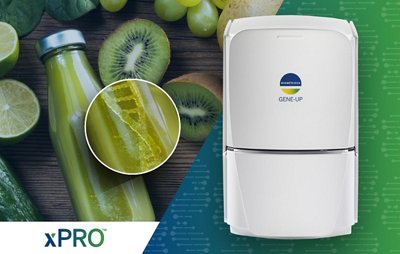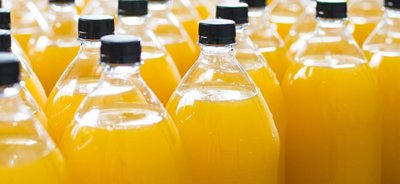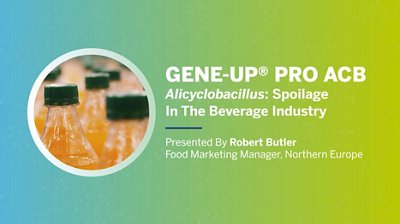Addressing spoilage of beverages due to Alicyclobacillus producer of Guaiacol with GENE-UP® PRO ACB

Sébastien Manuel, Food Quality Indicators & Spoilers EMEA Regional Business Development Manager
Alicyclobacillus spoilage: bioMérieux offers a robust solution for the beverage industry
Act fast and act early. This is what the beverage industry has in mind when addressing the growing issue of ACB spoilage. With bioMérieux’s GENE-UP® PRO ACB assay, beverage producers can quickly identify the presence of all ACB strains and determine whether they will generate the guaiacol metabolites that will impact the taste and smell of the product.
If you are struggling with Alicyclobacillus spoilage in your production process, you may find comfort in knowing you are clearly not alone. « ACB spoilage is a growing concern in the beverage industry, with an increasing impact on production processes » says Sébastien Manuel, EMEA Regional Business Development Manager at bioMérieux.
Alicyclobacillus (or ACB) affects a wide range of fruit juices, including orange, apple, pear or peach, as well as white grape nectars, multivitamin juices, sweeteners, herbal teas, vitamin enhanced flavoured and rinsing waters. ACB spoilage does not produce visible evidence such as gas or cloudiness in the juice. But it often results in an unpleasant phenolic medicinal smell and an acid taste.
“Alicyclobacillus is a concern for beverage producers as it typically grows at temperatures between 30 and 70°C as well as low pH values such as those of fruit juices”
ACB plays hard to get.
« Alicyclobacillus is a concern for beverage producers as it typically grows at temperatures between 30 and 70°C as well as low pH values such as those of fruit juices » explains Dr. Emilia Rico, founder, owner and CEO of BCN Research Laboratories, Inc., who has worked on ACB for the past 20 years.
« It is also difficult to eliminate, as ACB spores will resist temperatures of 90, 95 and even 100°C, meaning that pasteurization will not be enough to prevent spoilage. Also, high pressure treatment is not sufficient in itself ». This is why Dr. Rico believes it is very unrealistic to guarantee any product will be absolutely free of ACB.
However, the presence of ACB doesn’t necessarily lead to spoilage. The most predominant flavor induced by ACB is Guaiacol, a naturally occurring organic compound with a distinctive aromatic odor. The challenge in ACB spoilage prevention is to determine whether or not Guaiacol will be produced.
« The early detection of spoilage using rapid methods is a prime requirement of the industry » underscores Dr. Rico. « Research should focus on the improvement of existing techniques and the development of new methods to ensure the rapid and early detection of ACB producing guaiacol ».
Testing for Alicyclobacillus with GENE-UP® PRO ACB
It is with these same requirements in mind that bioMérieux developed GENE-UP® PRO ACB, an assay specifically designed to detect Alicyclobacillus Guaiacol producer presence.
« GENE-UP® PRO ACB stands out by its speed, efficiency, and ability to predict ACB spoilage. » says Benjamin Pascal, Global Head of xPRO, bioMérieux’s center of innovation in molecular diagnostics, based in Philadelphia.
Going beyond traditional assays
GENE-UP® PRO ACB also implements a robust predictive approach to detecting potential Guaiacol production. « We have built a significant sample library of ACB strains and are using bioinformatics tools to compare the genome information of all these variants and understand the differences between those species that produce guaiacol and those species that don’t » explains Benjamin Pascal.
“With GENE-UP® PRO ACB, we are targeting both ACB species and a very unique signature in the guaiacol metabolic pathway”
This means we can test for all ACB variants and also determine accurately if a given ACB strain will go on to produce Guaiacol and affect the smell and taste of the product”
With this assay, beverage producers can test upstream in the production process and rapidly assess the consequences of ACB presence without having to perform a secondary enzymatic assessment for guaiacol. GENE-UP® PRO ACB’s testing approach has been validated against IFU enumeration and enrichment based methodologies and has proven its ability to generate results that meet the sensitivity of the IFU enumeration method.
From a practical stand point, the assay runs on bioMérieux’s GENE-UP® Real Time thermocycler and can test up to 96 samples at the same time. GENE-UP® PRO ACB was introduced early 2022 and has already been implemented successfully by several bioMérieux customers in the beverage industry.





